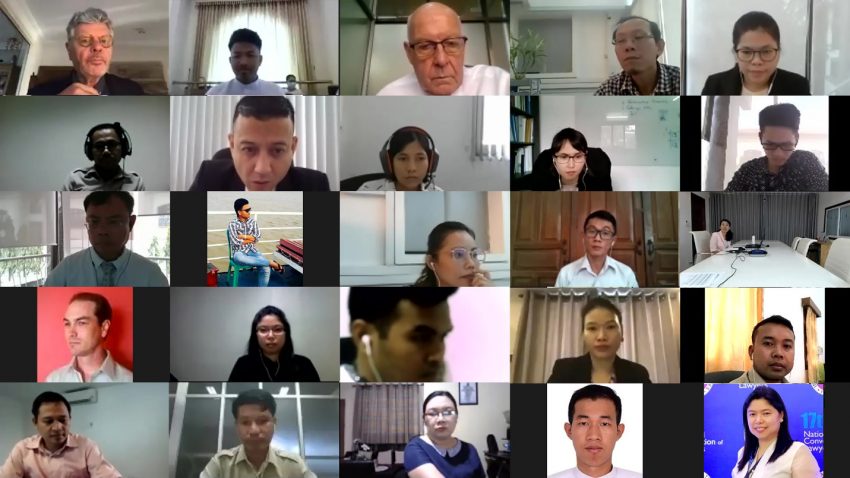PIC’s second annual Parliamentary Diplomacy Simulation Exercise began on 7 September, 2020. Modeled after the upcoming 11th Asia-Europe Parliamentary Partnership Meeting (ASEP 11), this practical workshop is the final phase of this year’s PIC Regional Fellowship Program on Parliamentary Diplomacy (RFPPD), now in its second intake.
The teleconference event featured an introduction by diplomat, former ambassador and now RFPPD Program Director Michel Foucher, and included participants from Cambodia, Myanmar and the Philippines. In his remarks, Professor Foucher stressed that proactive parliaments have a valuable role to play in helping to address issues at not only the national, but also the regional and international levels.
Accordingly, the priorities in designing this simulation were to provide an opportunity to practice the procedures and skills necessary to help Parliaments prepare for parliamentary diplomacy meetings and events. The exercise features three topics with examples selected to inform the participants of issues that are both current and permanent, and explores the role of Parliaments in addressing each of them.
During the first day, through the use of interactive technology, regional fellows, experts and PIC facilitators joined together to search for effective responses to issues affecting both Asia and Europe, and the ASEAN region in particular.
Discussions centered on how parliaments can best respond to supply chain challenges in the post-COVID-19 world, with a focus on the ASEAN-Japan economic resilience action plan. Regional fellows applied the knowledge and techniques they learned during the first phase of the RFPPD training to propose some responses, which included ways national parliaments and interparliamentary organizations could work to strengthen cooperation, develop regional supply chains towards a competitive ASEAN single market, provide needed support to small and medium enterprises, and encourage foreign direct investment provided certain environmental protection conditions are met.
In days two through four, participants will take a closer look at international intellectual property regulations, and the role of bilateral and regional trade agreements in a larger multilateral framework. Fellows will learn about the European perspective on some of the issues, and discuss together whether an AIPA-EP consensus on the topics is possible, and what it might look like.
On the final day of the simulation exercise, a drafting committee selected by participants will work to include the agreed positions of each Parliament into a Final Declaration, which will then be voted on and approved, provided a consensus can be reached.

